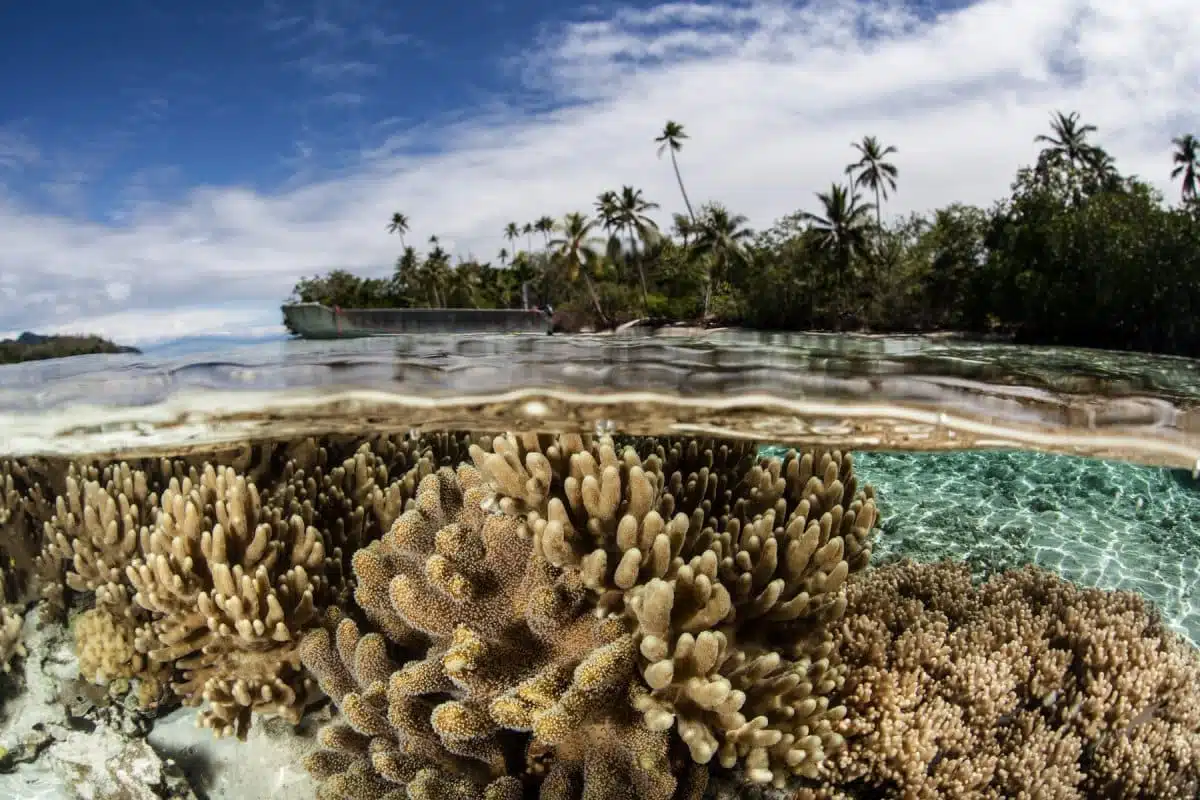Oceania, a vast region encompassing Australia, New Zealand, and the Pacific Islands, offers mesmerizing experiences for the sustainable traveler. This guide leads you through some of Oceania’s most inspiring destinations, where ecological preservation, cultural respect, and responsible tourism practices are at the forefront. From the pristine wilderness of Tasmania to the culturally rich islands of Fiji, these destinations are extraordinary travel experiences and opportunities to impact the places and communities you visit positively. Embrace the essence of sustainable travel in Oceania and contribute to preserving this region’s unique natural beauty and cultural heritage.
1. Tasmania, Australia
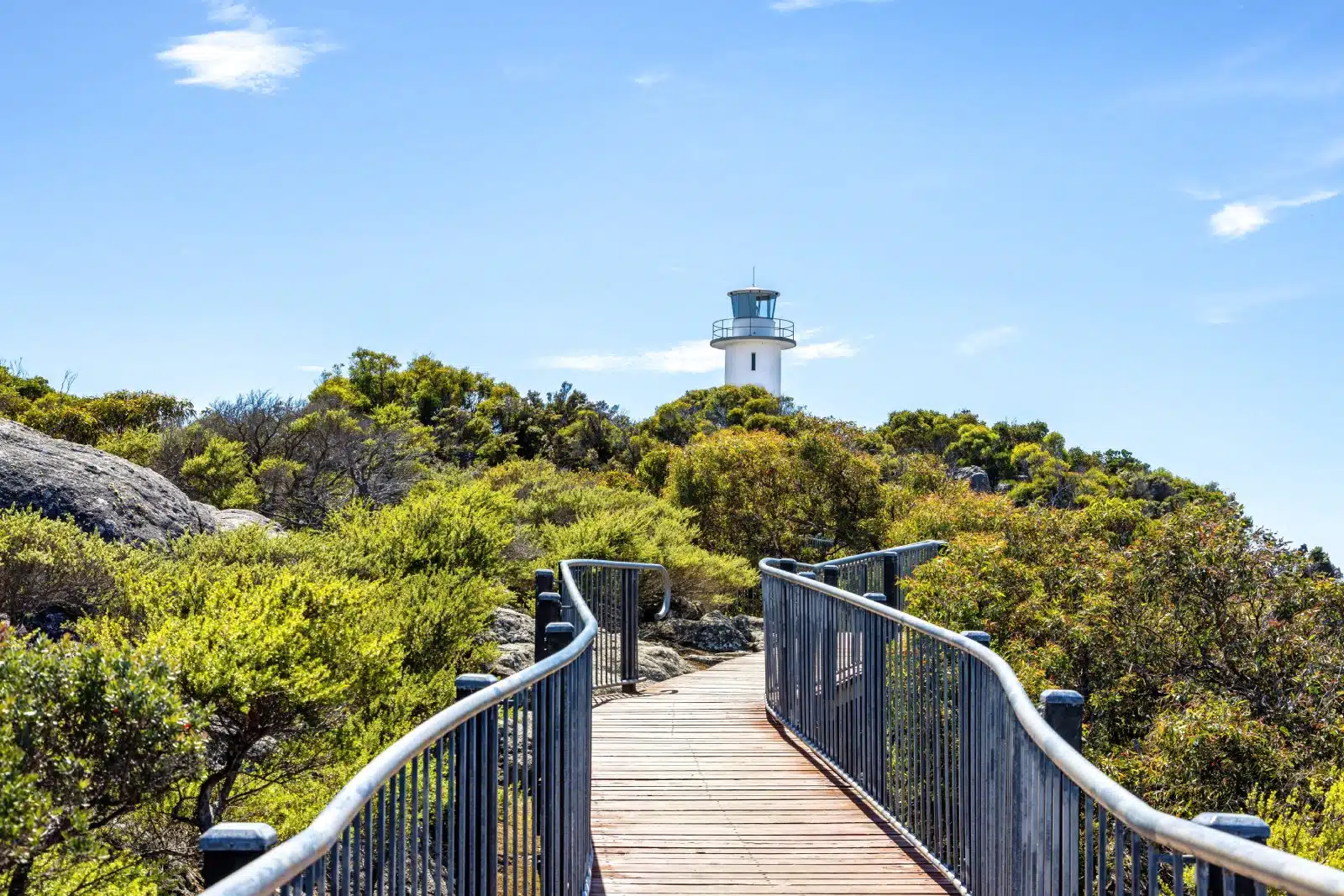
Image Credit: Shutterstock / Jane Rix
Tasmania, known for its rugged wilderness and commitment to conservation, is a haven for sustainable travel. Over 40% of the island is protected as national parks and reserves, allowing travelers to explore untouched landscapes while minimizing their environmental footprint. Highlights include the pristine Tarkine rainforest, the stunning Freycinet National Park, and the UNESCO World Heritage-listed Tasmanian Wilderness. Visitors can indulge in eco-friendly activities like hiking, kayaking, and wildlife watching, often encountering the island’s unique fauna, such as Tasmanian devils and quolls.
Insider’s Tip
Stay in eco-lodges that utilize renewable energy and practice sustainable tourism.
When To Travel
November to April for warmer weather and outdoor activities.
How To Get There
Fly into Hobart or Launceston from major Australian cities. Tasmania is also accessible by ferry from Melbourne.
2. Northland, New Zealand
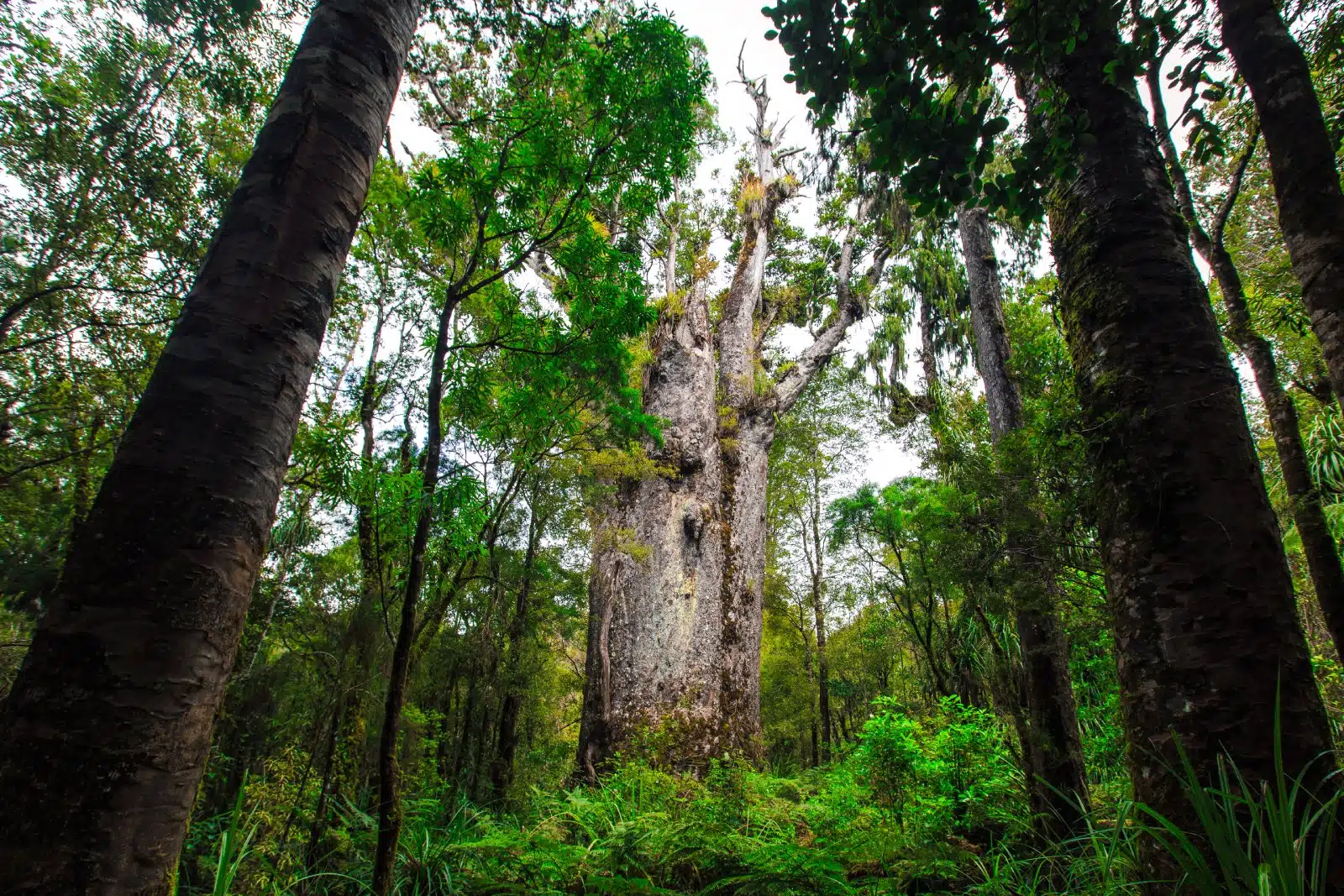
Image Credit: Shutterstock / Foto-Jagla.de
Northland, at the northern tip of New Zealand’s North Island, offers a blend of cultural history and environmental beauty. This region is home to the Waitangi Treaty Grounds, where New Zealand’s founding document was signed, and the Kauri Coast, known for its ancient kauri trees. Sustainable practices include supporting local Maori-owned businesses and engaging in conservation efforts to protect the native flora and fauna. Activities range from exploring the Bay of Islands to visiting the historic Cape Reinga.
Insider’s Tip
Take part in cultural tours led by local Maori guides for an authentic insight into the region’s history.
When To Travel
December to March for the best weather.
How To Get There
Fly into Auckland and drive north or take a domestic flight to Whangarei.
3. Fiji
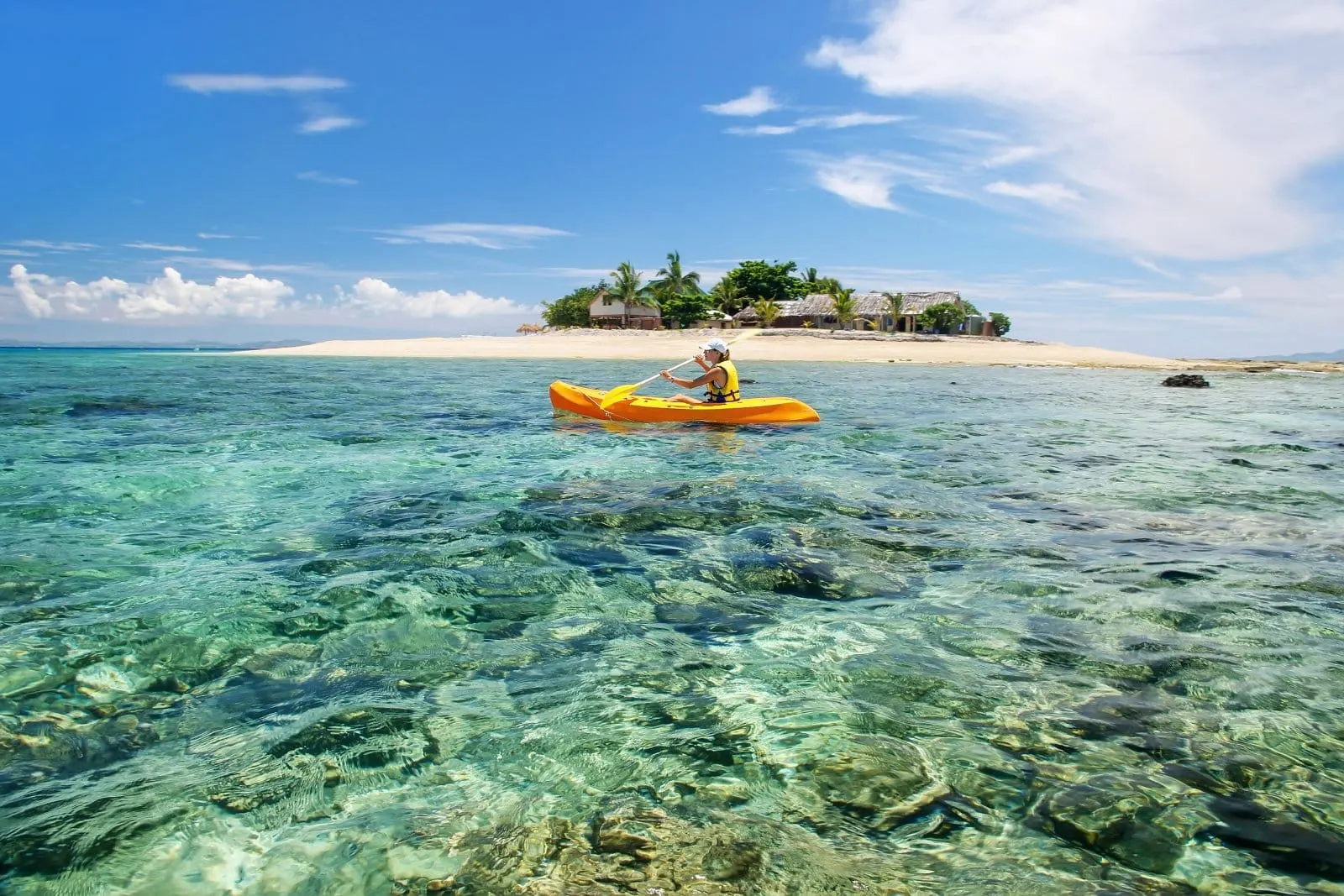
Image Credit: Shutterstock / Don Mammoser
With its crystal-clear waters and rich marine life, Fiji is a leader in sustainable island tourism. Resorts and local communities work together to protect the environment with initiatives like coral reef restoration and the ban on single-use plastics. Fiji offers a range of eco-friendly activities, from snorkeling in marine reserves to participating in traditional Fijian ceremonies. The islands also provide opportunities to learn about sustainable agriculture and fishing practices.
Insider’s Tip
Choose resorts that are part of the Fiji Ecotourism Association.
When To Travel
May to October for dry weather and optimal diving conditions.
How To Get There
Fly into Nadi International Airport from major international cities.
4. Great Barrier Reef, Australia
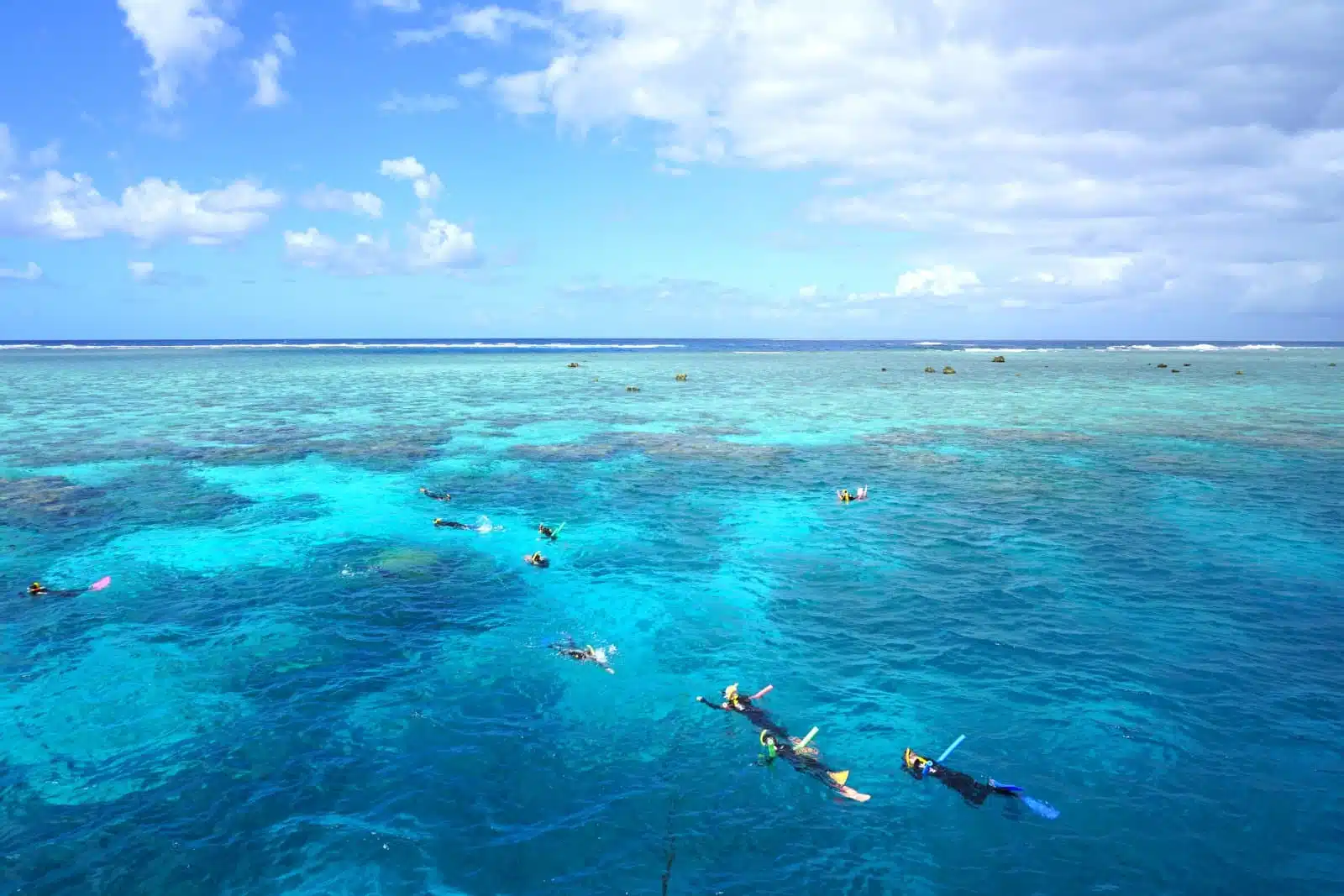
Image Credit: Shutterstock / EQRoy
The Great Barrier Reef is a world-renowned natural wonder, offering a unique opportunity for sustainable exploration of its vibrant coral ecosystem. Tour operators and conservation groups offer eco-certified tours that promote reef health and educate visitors on the challenges facing this delicate environment. Activities include snorkeling, diving, and glass-bottom boat tours, with opportunities to participate in citizen science projects.
Insider’s Tip
Engage with marine biologists to learn about coral conservation efforts.
When To Travel
June to October for clear visibility and calmer seas.
How To Get There
Fly to Cairns or Townsville and join a certified eco-tour.
5. Samoa
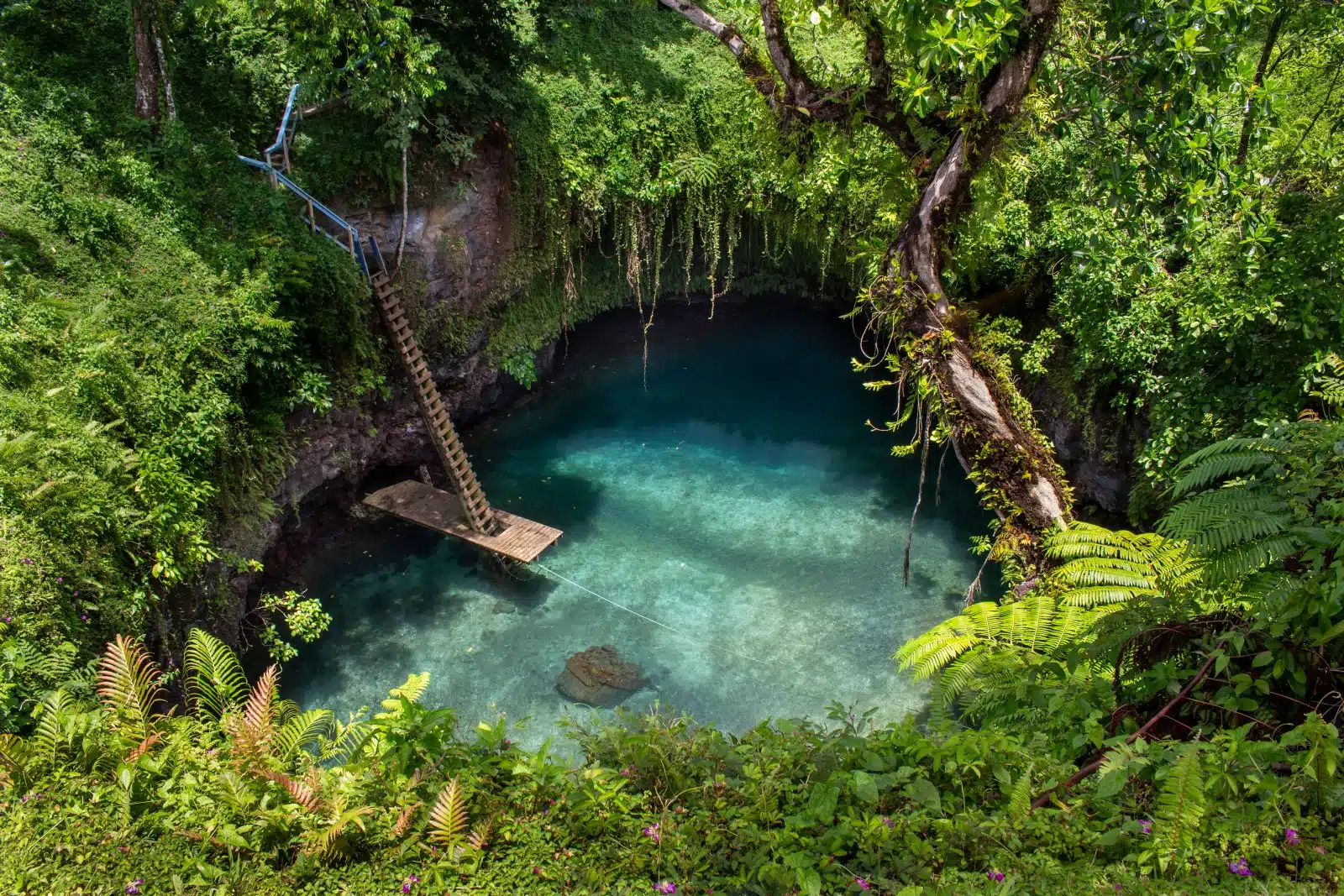
Image Credit: Shutterstock / mayqo
With its unspoiled landscapes and strong cultural traditions, Samoa is an ideal destination for responsible travel. The Samoan way of life, or Fa’a Samoa, emphasizes a deep connection to the land and sea. Visitors can experience this firsthand by staying in traditional fales (beach huts), participating in village life, and learning about local conservation efforts. Samoa’s natural attractions include the To Sua Ocean Trench, Togitogiga Waterfall, and the Palolo Deep Marine Reserve.
Insider’s Tip
Support community-based tourism initiatives that directly benefit local villages.
When To Travel
May to October for drier weather.
How To Get There
Fly into Faleolo International Airport, near Apia, Samoa’s capital.
6. Rotorua, New Zealand
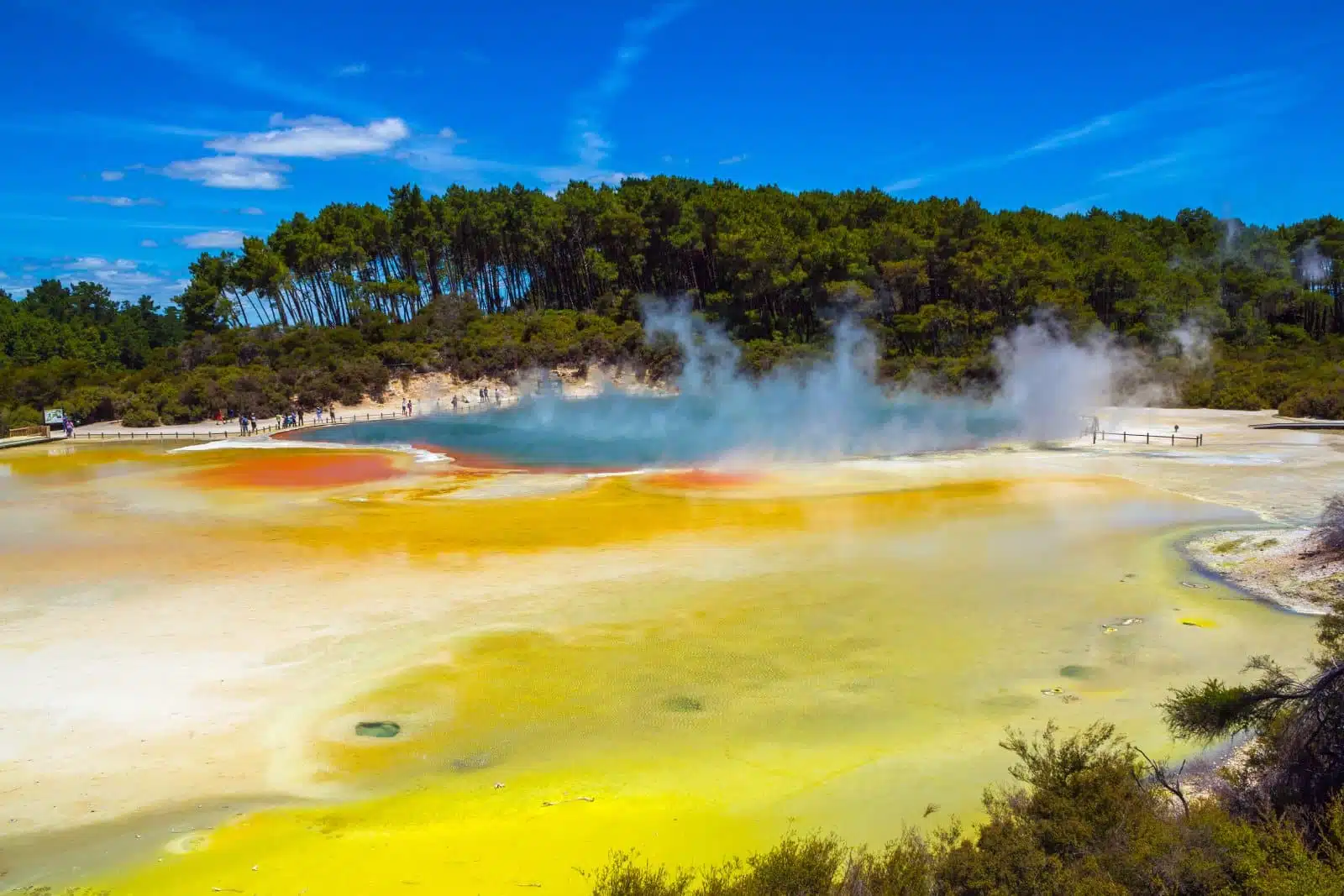
Image Credit: Shutterstock / Stargrass
In the heart of New Zealand’s North Island, Rotorua is renowned for its geothermal phenomena and Maori cultural heritage. The city and its surrounding area offer a range of sustainable travel experiences, from geothermal parks with eco-friendly practices to Maori cultural performances that preserve and share traditional knowledge. Visitors can explore bubbling mud pools, relax in natural hot springs, and learn about geothermal energy’s role in the local economy.
Insider’s Tip
Experience a traditional Maori hangi (feast) cooked using geothermal steam.
When To Travel
All year round, each season offers a different experience.
How To Get There
Fly into Rotorua Regional Airport or drive from Auckland or Wellington.
7. Vanuatu
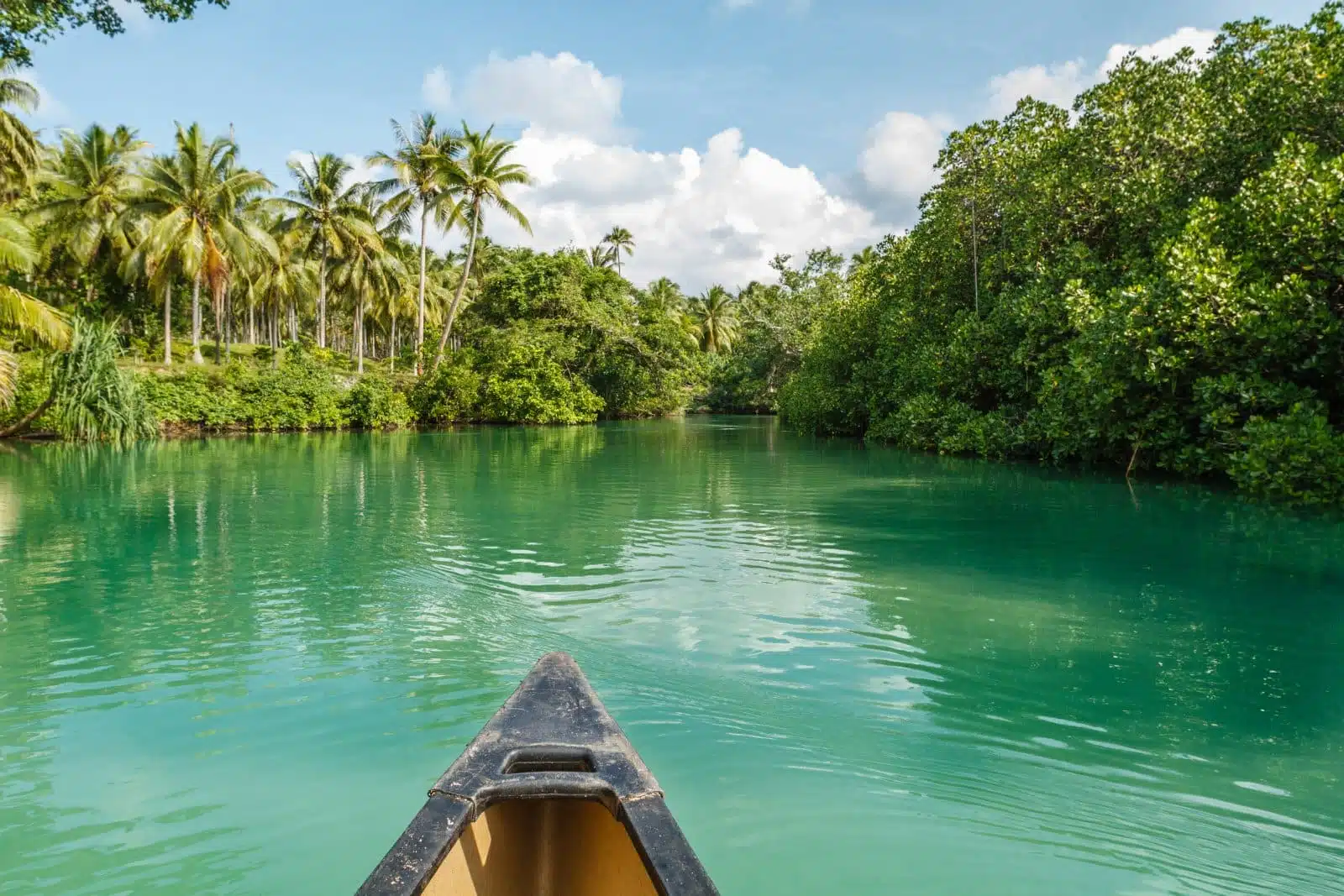
Image Credit: Shutterstock / Gekko Gallery
Vanuatu, an archipelago in the South Pacific, is committed to preserving its natural and cultural heritage. The islands offer eco-friendly accommodations and activities like snorkeling in marine sanctuaries, hiking to active volcanoes, and engaging with local communities. Vanuatu’s unique culture, visible in its traditional Melanesian festivals and village customs, provides an enriching and sustainable travel experience.
Insider’s Tip
Participate in a cultural tour to learn about traditional Vanuatu lifestyles and customs.
When To Travel
April to October for a comfortable climate and less rainfall.
How To Get There
Fly into Bauerfield International Airport in Port Vila.
8. The Cook Islands
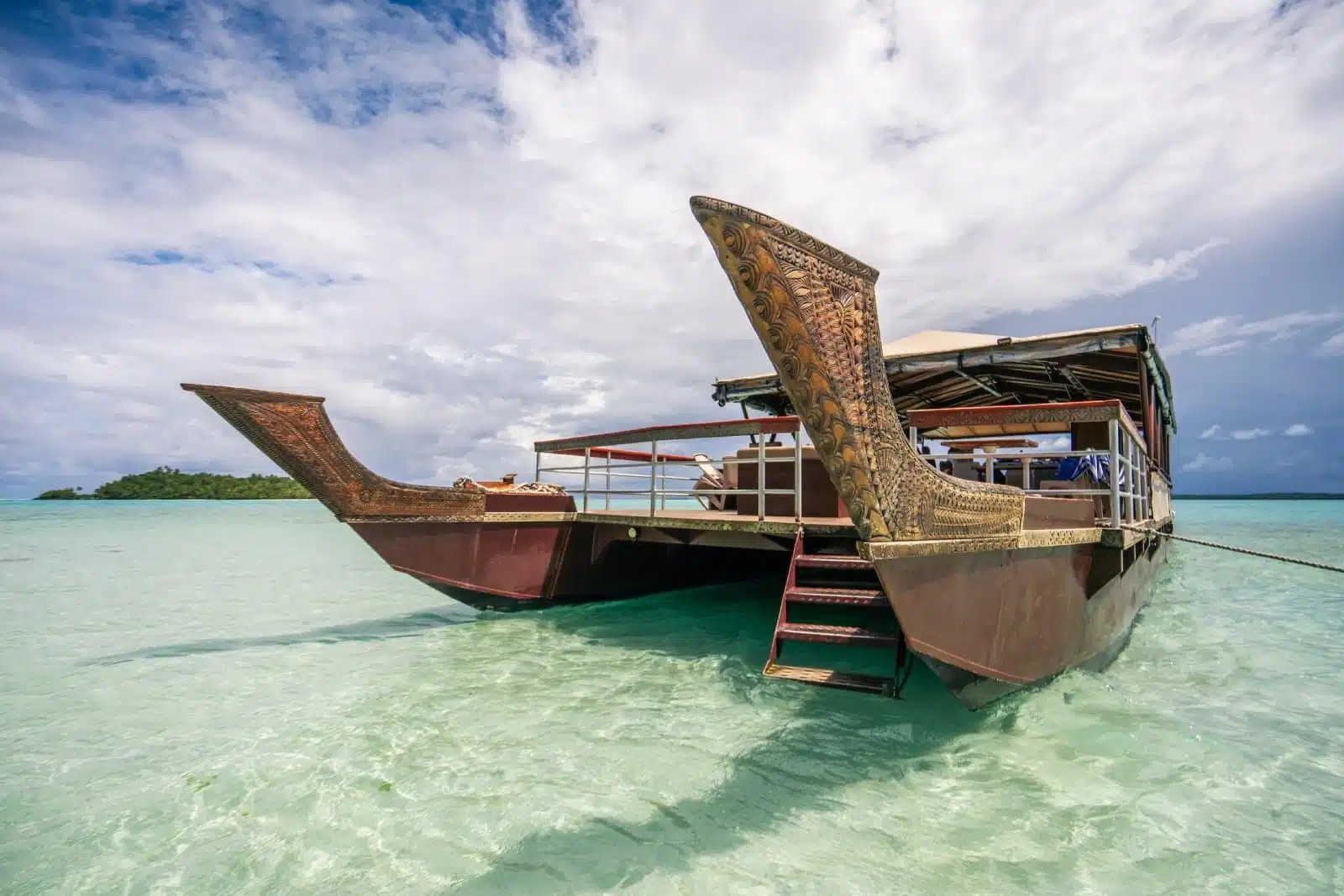
Image Credit: Shutterstock / Outbound Visuals
The Cook Islands, a nation of 15 islands in the South Pacific, is a model of sustainable tourism. The islands’ commitment to preserving their natural environment and Polynesian culture is evident in their responsible tourism practices. Rarotonga, the largest island, offers lush mountain hikes, lagoon cruises, and cultural village tours. With its stunning lagoon, Aitutaki is perfect for eco-friendly water activities like kayaking and stand-up paddleboarding.
Insider’s Tip
Visit during the Te Maeva Nui festival in July for cultural performances and celebrations.
When To Travel
May to October for drier weather and pleasant temperatures.
How To Get There
Fly into Rarotonga International Airport, with direct flights from New Zealand and Australia.
9. The Solomon Islands
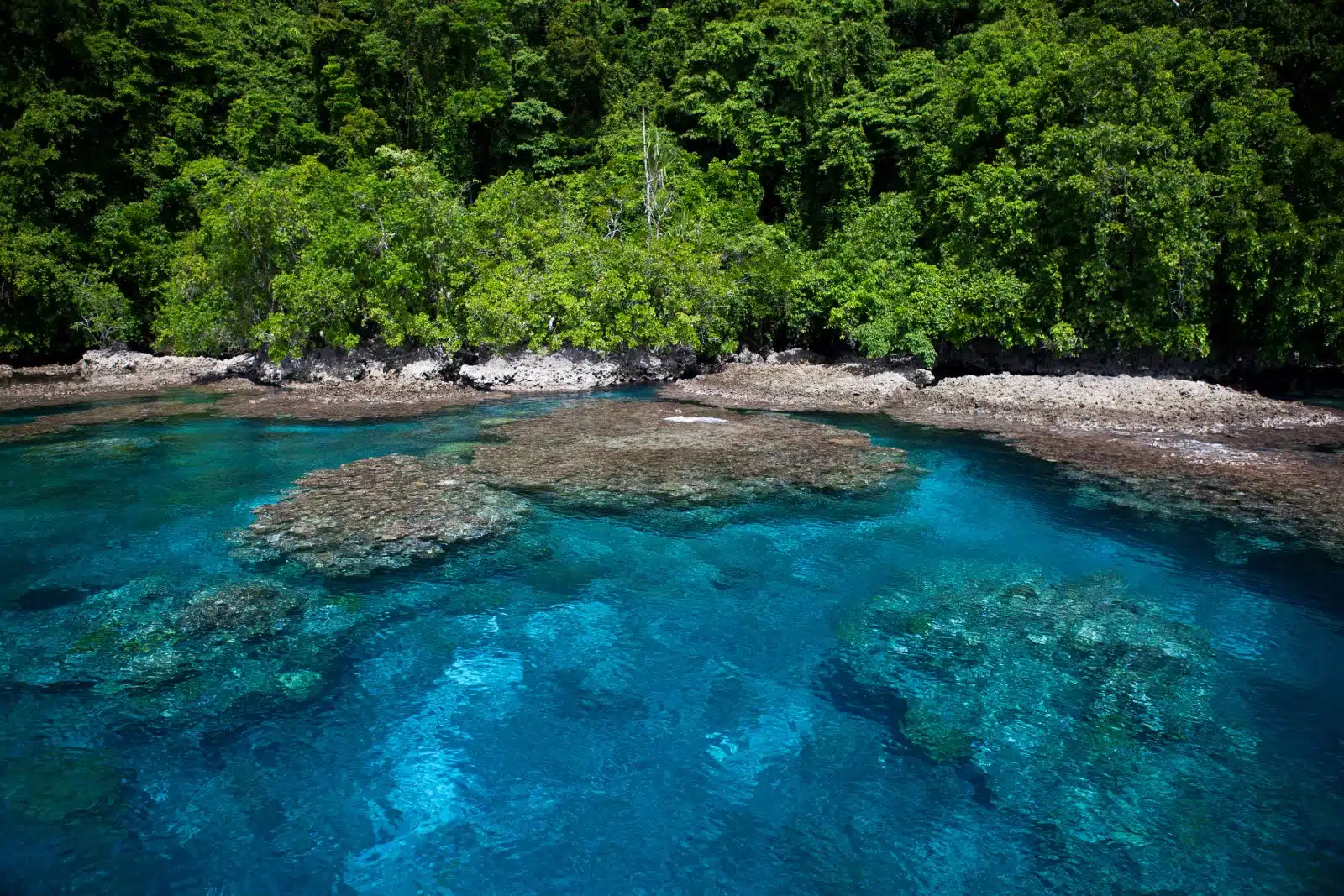
Image Credit: Shutterstock / Ethan Daniels
The Solomon Islands, known for their rich biodiversity and WWII history, offer a sustainable travel experience rooted in nature and heritage. The islands’ commitment to preserving their ecosystems is seen in their protected marine areas and community conservation efforts. Visitors can explore coral reefs, WWII relics, and traditional villages. The Solomon Islands also offer opportunities for cultural immersion, including traditional dance and music.
Insider’s Tip
Dive or snorkel at the Florida Islands to explore pristine coral reefs and WWII wrecks.
When To Travel
April to November for the best weather for outdoor activities.
How To Get There
Fly into Honiara International Airport from Australia or Fiji.
10. New Caledonia
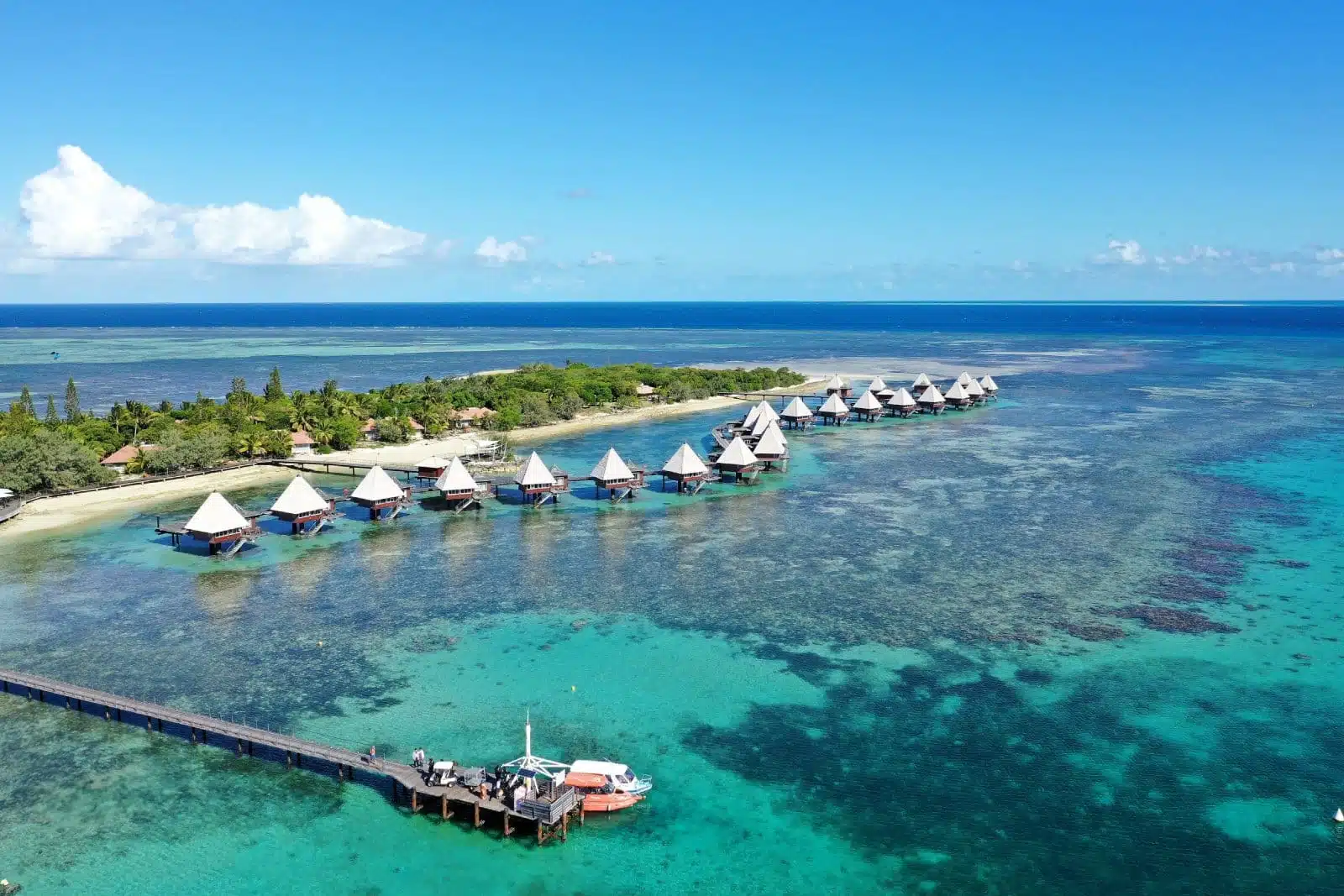
Image Credit: Shutterstock / Bjwair
New Caledonia, a French territory in the South Pacific, is known for its unique blend of Melanesian culture and French sophistication. The islands are committed to sustainable tourism, focusing on protecting their diverse marine life and promoting cultural exchange. The lagoon surrounding New Caledonia is a UNESCO World Heritage site, offering world-class snorkeling and diving. Inland, visitors can explore lush forests and learn about Kanak culture.
Insider’s Tip
Visit the Tjibaou Cultural Centre in Noumea to understand Kanak traditions and history.
When To Travel
September to December for ideal weather conditions.
How To Get There
Fly into La Tontouta International Airport near Noumea.
The Bottom Line
Sustainable travel in Oceania affords you breathtaking landscapes, allows you to engage with the region’s diverse cultures, and contributes to preserving its natural wonders. As you explore Oceania, remember that your choices as a traveler have the power to support environmental conservation and cultural preservation. Whether you’re snorkeling in Fiji’s crystal-clear waters, participating in a traditional Maori ceremony in New Zealand, or hiking through the rainforests of Vanuatu, your journey can leave a positive impact. Embrace the spirit of sustainable travel, and let Oceania’s natural beauty and rich cultural tapestry inspire a deeper connection to our planet.
More From The Green Voyage
Top 10 Trending Travel Destinations 2024
6 Essential Banking Apps for International Travel – Managing Your Finances on the Go
Traveling With Kids – 10 Tips to Create Memorable Family Holidays
The post 10 Sustainable Travel Destinations in Oceania – A Conscious Traveler’s Guide 2024 first appeared on The Green Voyage.
Featured Image Credit: Shutterstock / Ethan Daniels.
For transparency, this content was partly developed with AI assistance and carefully curated by an experienced editor to be informative and ensure accuracy.
Tips for Trip Success
Book Your Flight
Find an inexpensive flight by using Kayak, a favorite of ours because it regularly returns less expensive flight options from a variety of airlines.
Book Your Hotel or Special Accommodation
We are big fans of Booking.com. We like their review system and photos. If we want to see more reviews and additional booking options, we go to Expedia.
You Need Travel Insurance!
Good travel insurance means having total peace of mind. Travel insurance protects you when your medical insurance often will not and better than what you get from your credit card. It will provide comprehensive coverage should you need medical treatment or return to the United States, compensation for trip interruption, baggage loss, and other situations.Find the Perfect Insurance Plan for Your Trip
